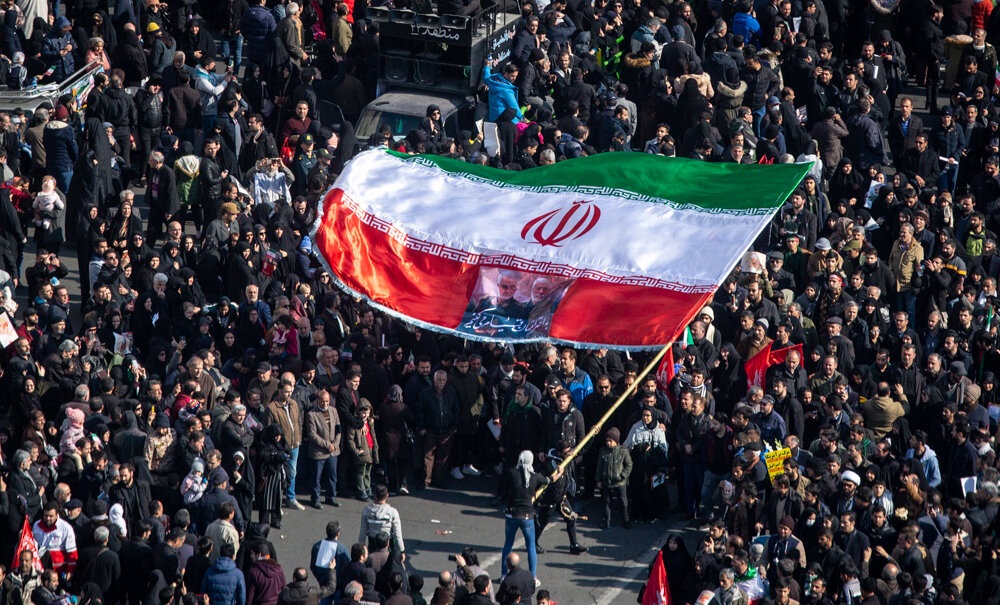
Wikimedia Commons
On his way to testifying before the House of Foreign Affairs Committee, foreign policy expert Michael Singh stopped by at Yale on Monday to discuss the past, present and future of United States diplomacy in the Middle East.
Singh delivered a talk followed by a Q&A session at William L. Harkness Hall in which he discussed relations between the US and the region. To an audience of roughly a dozen attendees, Singh presented an argument largely critical of American policies in the Middle East. He stressed that there is an increasing gap between the ambitious goals of policymakers and the public’s general desire for less American involvement in the Middle East. He called for a revision of American objectives in the region and a shift from a reactionary approach to a more calculated, consistent strategy aimed at conflict avoidance and de-escalation.
“When it comes to the short-term [and] long-term question, there is a tendency to focus on those problems which are right in front of us,” Singh said. “We have ignored fundamental issues in the region… Working on issues in the region such as economic reform and political reform… would have paid greater dividends for the region.”
Singh’s talk aimed at providing a framework to understanding how the United States makes policy in the Middle East — and why these policies so often fail. Alex Hu ’22, the director of Yale’s chapter of the Alexander Hamilton Society, opened the talk by stressing the urgency of understanding the region today, given the escalating tension with Iran and the controversial Trump Peace Plan for Israel and Palestine.
Singh is the managing director of The Washington Institute for Near Eastern Policy. He previously worked as a senior director for Middle East affairs at the National Security Council and served under two congressionally-mandated study-groups that dealt with Middle East policy issues. On Wednesday, Singh will testify in front of the House of Foreign Affairs Committee about the recently uncovered Trump Peace Plan.
On Monday, Singh also spoke about the changing public perception of the Middle East, in relation to the rise of intra-state wars and terrorism. In the past “you had a regional security architecture that had the US firmly at the center … we have decided we are less willing to play that role,” Singh said.
This shift, he said, laid the groundwork for the emergence of violent non-state actors, such as ISIS, who filled the power vacuum.
To defend American interests in the Middle East, Singh emphasized the importance of strengthening weak allies and fighting illegitimate non-state actors.
“[Future policies] have to address both those who are moving into the vacuum … and the weakness of our traditional allies,” Singh said. “We are not going to want to step back into the role that we had before.”
According to Singh, American policymakers ought to shift focus from addressing immediate issues to preventing conflict in the first place.
During the Q&A session, the discussion moved toward specific case studies, from Israeli attacks on Syrian nuclear sites in 2007 to NATO’s intervention in Libya in 2011. Singh gave insight on the inner debates of White House strategists — which he witnessed while working under the Bush administration — about an approach to Syria’s attempts to develop a nuclear program.
Finishing with a more optimistic tone, Singh praised America’s relative success in containing the Israeli-Arab conflict over the past few decades. These successes were only accomplished due to a bipartisan collaboration in Congress.
While appreciating Singh’s adherence to pragmatism when discussing Middle Eastern policy, Mathis Louis-Bitton ’23 said the talk could have benefited from laying down “a better understanding of the ideological underpinnings.”
In an interview with the News, Hu, the group’s director, said that he thought Singh’s first-hand experience greatly enhanced his understanding of the issues at hand.
“It is not a perspective we often hear — the words of someone who is actually in the hot seat,” he said.
The Alexander Hamilton Society is a non-for-profit, non-partisan organization, currently operating at 60 campuses nationwide.
Gall Sigler | gall.sigler@yale.edu







